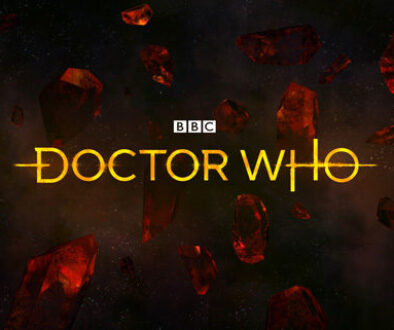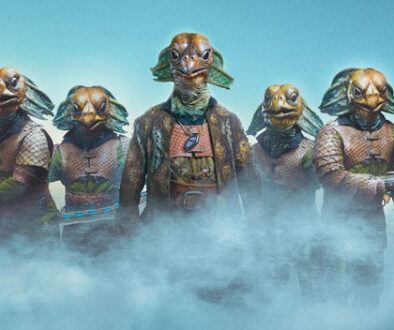2nd Opinion, Take 1 “Village of the Angels” – Back to Form
Gustaff Behr’s take on the fourth episode of Series 13.

Back to form.
That’s how I’d sum up this episode. Not in terms of Series 13, but Doctor Who in general. And I’d expect no less from Maxine Alderton who easily wrote my favorite episode of the Chibnall Era: “The Haunting of Villa Diodati”. What’s so refreshing about this episode is that it perfectly demonstrates the issues I have with this era in general and solves them just as swiftly.
Don’t believe me? How’s this…
It is exceptionally easy to tell which parts of this episode were written by Chibnall and which were done by Alderton. Everything in the village is her handiwork, while Chibnall wrote the TARDIS and Bel scenes, along with the Doctor’s interrogation of the Angel inside the Claire mindscape.
How do I know this?
 Just look at the first scene in the TARDIS. Characters are telling us exactly what is happening almost as quickly as the television is showing us. The dialogue feels clunky and largely unnecessary, which is commonplace in a Chibnall episode. He isn’t a writer who believes in ‘less is more’ which is why he is compelled to underline his dialogue to make sure the “dumdums” at home understand what is going on. If you still don’t understand what I mean, just picture Mojo Jojo from The Powerpuff Girls cartoon.
Just look at the first scene in the TARDIS. Characters are telling us exactly what is happening almost as quickly as the television is showing us. The dialogue feels clunky and largely unnecessary, which is commonplace in a Chibnall episode. He isn’t a writer who believes in ‘less is more’ which is why he is compelled to underline his dialogue to make sure the “dumdums” at home understand what is going on. If you still don’t understand what I mean, just picture Mojo Jojo from The Powerpuff Girls cartoon.
Thankfully, Chibnall’s writing is sparse and massively overshadowed by Alderton’s thrilling adventure. You can tell she knows the Angels inside and out. She plays on nearly every trope we know so far while also expanding on the mythos. Such as when the destroyed drawing of the Angel reassembles itself before coming to life. It adds another layer of horror knowing that even destroyed images of Angels can become Weeping Angels. Or how about finding out that they can use quantum extraction to displace an entire town in a bubble and slowly collapse it, leaving their prey nowhere to run.
The Weeping Angels aren’t as scary this time around (it has been over a decade since their introduction) so Alderton wisely chooses to focus on their cunning and ruthlessness. Throughout the episode I kept wondering why these Angels were so slow or why they had so much difficulty getting through simple wooden doors when weaker Angels have busted through magnetized steel ones in the past.
The answer?
 The Weeping Angels are all doing this deliberately. They are drawing out their chase of the Doctor and company because they’re playing with their food. They want the Doctor to concentrate all her efforts into working out what’s happening, knowing that it’s pointless. This is perfectly demonstrated when the Doctor wonders why she hasn’t been caught yet by the Angel. It also doubles as a WTF moment for the audience when the Doctor purposely blinks and nothing happens.
The Weeping Angels are all doing this deliberately. They are drawing out their chase of the Doctor and company because they’re playing with their food. They want the Doctor to concentrate all her efforts into working out what’s happening, knowing that it’s pointless. This is perfectly demonstrated when the Doctor wonders why she hasn’t been caught yet by the Angel. It also doubles as a WTF moment for the audience when the Doctor purposely blinks and nothing happens.
At the heart of this is Claire, but I’m going to say that I loved Professor Jericho just as much. The two characters proved to be really wonderful to watch onscreen. Jericho and the Doctor have natural chemistry together, and I look forward to seeing more of the silly prof, but I genuinely don’t want to see anything bad happen to Claire. She has such a tragic story attached to her; being possessed and haunted by this otherworldly creature must be pure nightmare fuel.
 Not that surprisingly, Yaz is actually portrayed as a competent character that has something to do. I imagine this characterization is what her fans generally see when they watch her, but this is one of the very few times during her run that she is portrayed the way you imagine she is. She is an officer of the law…maybe (This series is very unclear about that). Still, Yaz asks questions, interrogates people, gathers clues and works the case. In short, Alderton is using her as something other than a reason to exposit information to. If only she’d get more of these scenes. Dan is put on the back burner, unfortunately. If Yaz gets to be the Doctor, then he is her Yaz this week. This is starting to make me question why he is even a companion, this series. He hasn’t been developed much beyond his initial appearance.
Not that surprisingly, Yaz is actually portrayed as a competent character that has something to do. I imagine this characterization is what her fans generally see when they watch her, but this is one of the very few times during her run that she is portrayed the way you imagine she is. She is an officer of the law…maybe (This series is very unclear about that). Still, Yaz asks questions, interrogates people, gathers clues and works the case. In short, Alderton is using her as something other than a reason to exposit information to. If only she’d get more of these scenes. Dan is put on the back burner, unfortunately. If Yaz gets to be the Doctor, then he is her Yaz this week. This is starting to make me question why he is even a companion, this series. He hasn’t been developed much beyond his initial appearance.
 I found Jodie Whitaker to be on top form this week. Alderton knows how to write this incarnation as a good mix of competent and compassionate. Thirteen asks permission to intrude into Claire’s mind; not something someone with social anxiety would typically know to do. She is also fierce and determined when dealing with the Angels. She is immediately suspicious of the Angel’s plight. She knows better than to trust something she has such a long bad history with. Again, this is in stark contrast to her normal portrayal. In “The Timeless Children” she can’t believe the Time Lords would lie to her despite knowing them for over two thousand years as selfish, self-serving bureaucrats (cue Sixth Doctor’s “Absolute Power” speech). Again, compliments to the writer… one of them, anyway.
I found Jodie Whitaker to be on top form this week. Alderton knows how to write this incarnation as a good mix of competent and compassionate. Thirteen asks permission to intrude into Claire’s mind; not something someone with social anxiety would typically know to do. She is also fierce and determined when dealing with the Angels. She is immediately suspicious of the Angel’s plight. She knows better than to trust something she has such a long bad history with. Again, this is in stark contrast to her normal portrayal. In “The Timeless Children” she can’t believe the Time Lords would lie to her despite knowing them for over two thousand years as selfish, self-serving bureaucrats (cue Sixth Doctor’s “Absolute Power” speech). Again, compliments to the writer… one of them, anyway.
I greatly enjoyed the pacing of this episode. Time is adequately divided between the three storylines, with scenes ending on frustratingly good hooks to keep viewers watching. The cliffhanger of the Doctor being transformed into a Weeping Angel will definitely go down as one of the most nail-biting in Who history, rivaling The Caves of Androzani, “Utopia” and “The Stolen Earth”. Kudos.
It’s a genuine shame Maxine Alderton hasn’t been asked to write more episodes. As of writing this review, she has written two episodes for the era and if past showing is anything to go by, “Village of the Angels” will end up high on the fan polls, beating out most of Chris Chibnall’s entire portfolio. Please, BBC, consider keeping this talented woman around. She isn’t a great female writer, she’s a great writer who just happens to be female.








